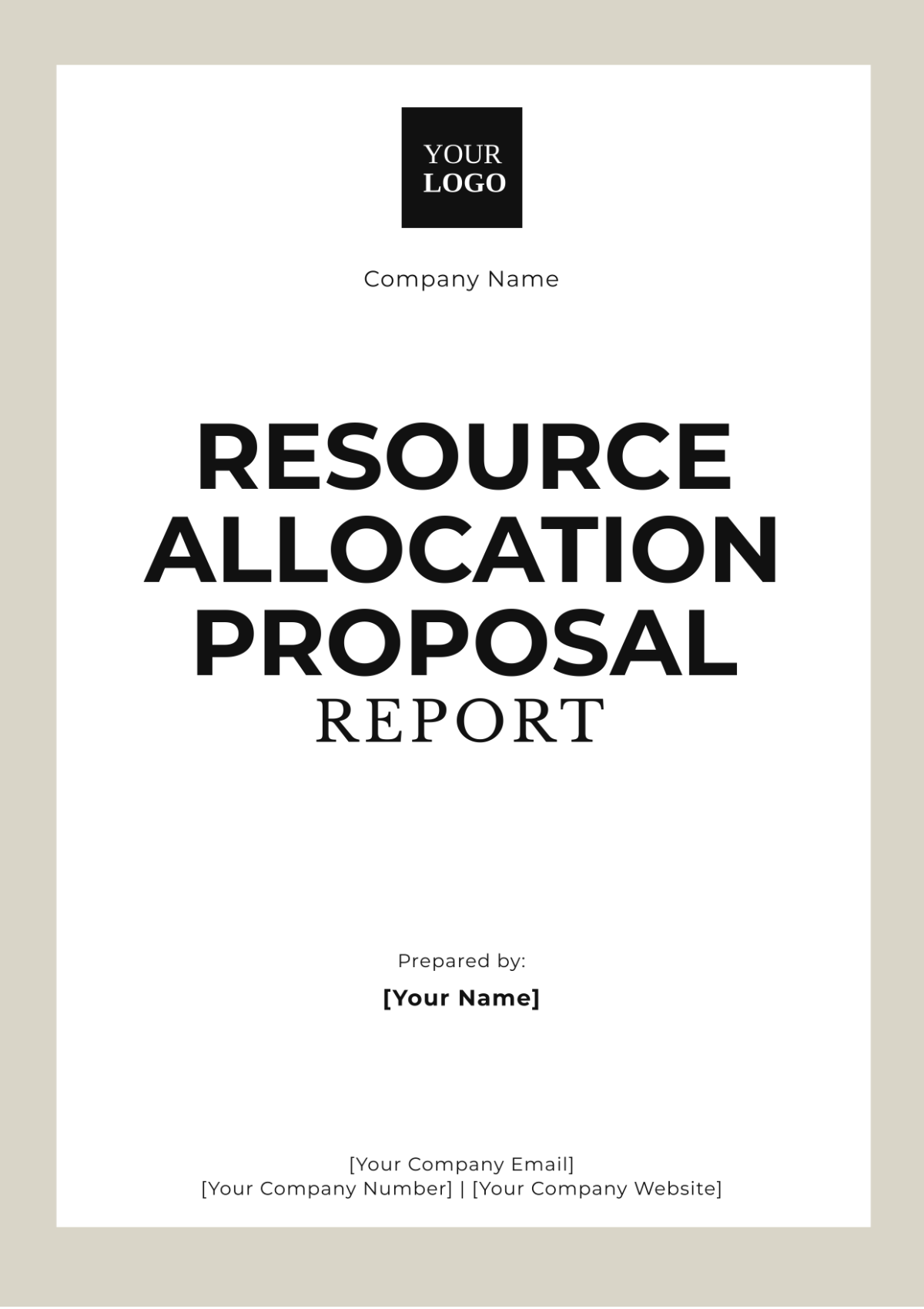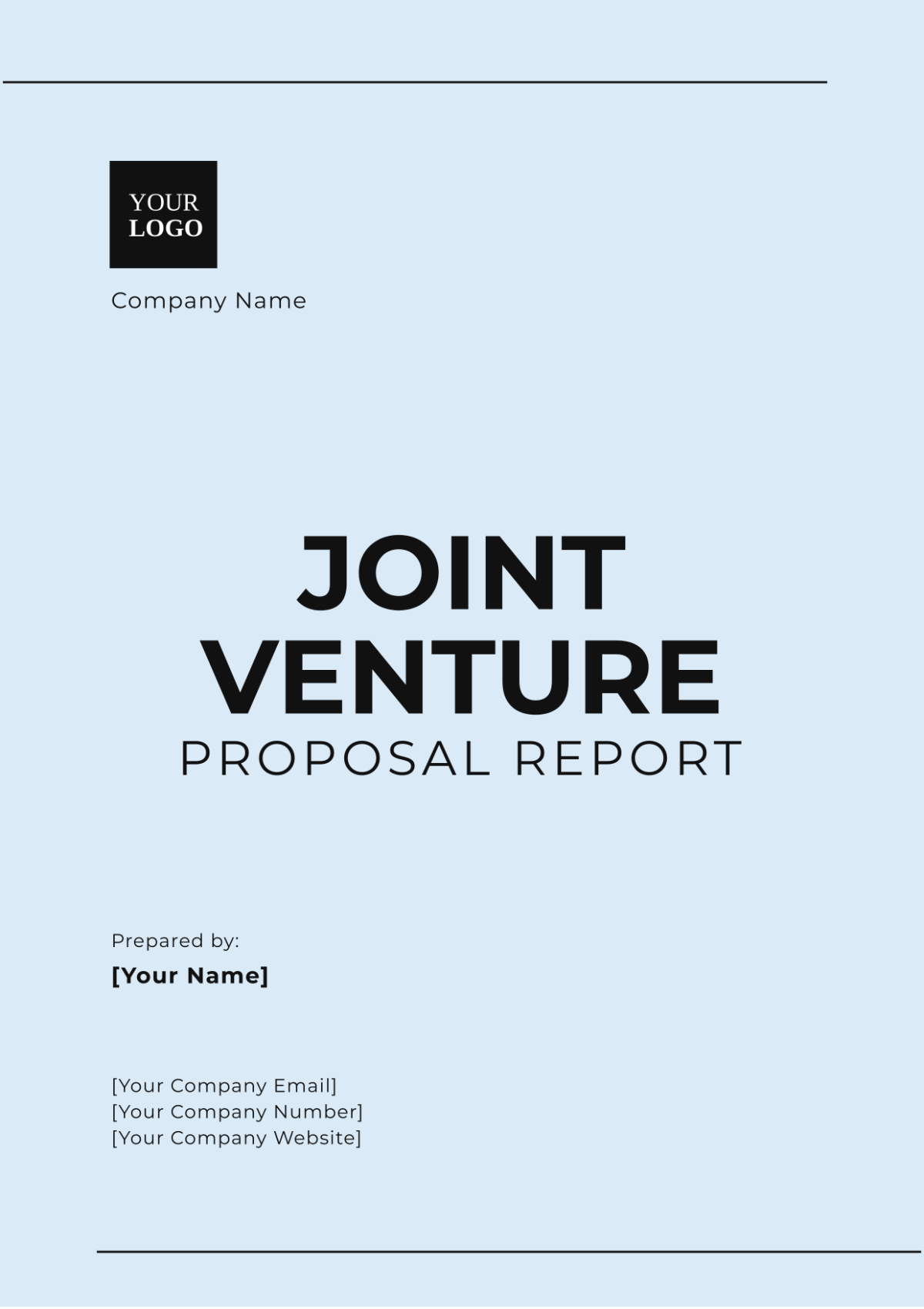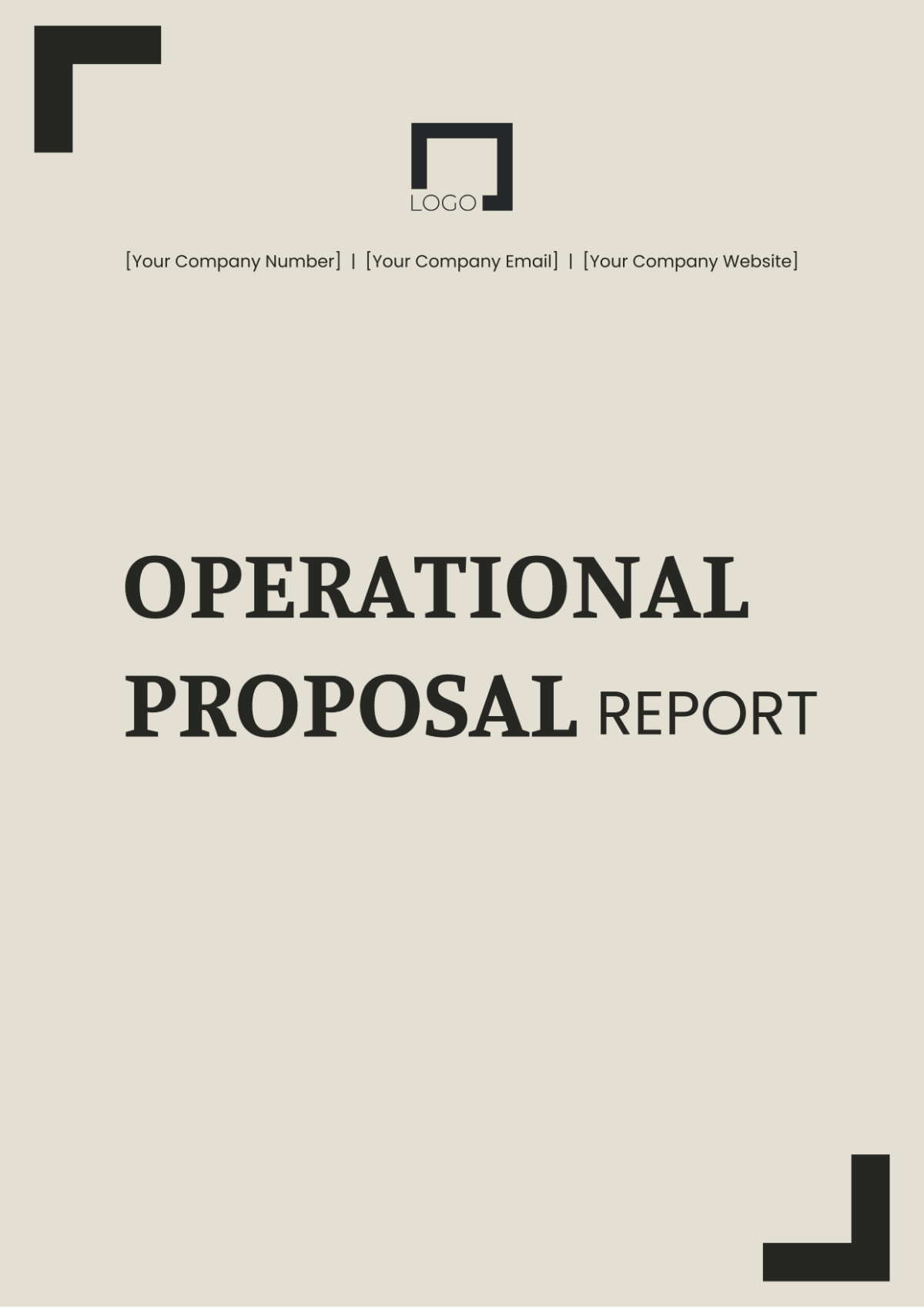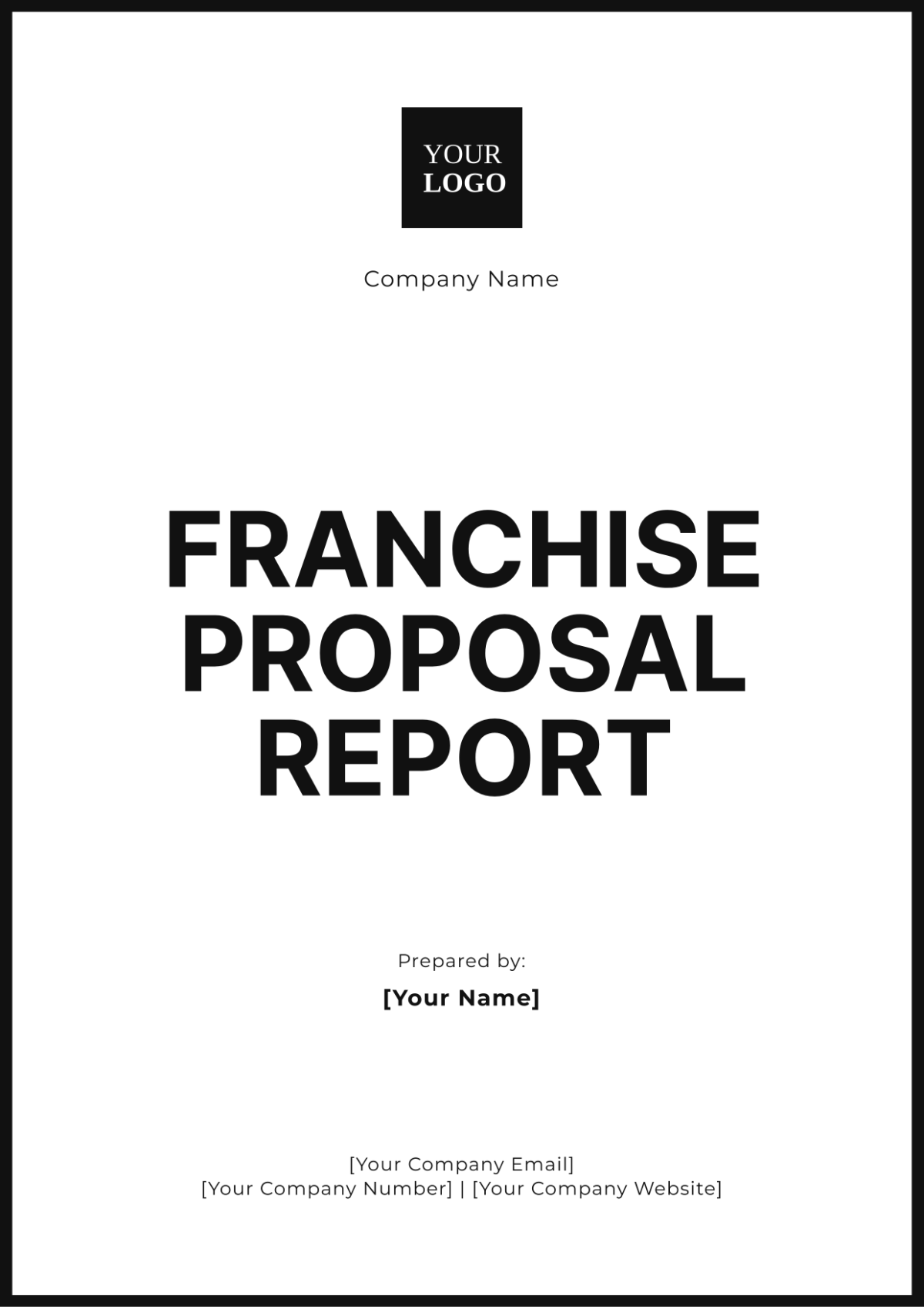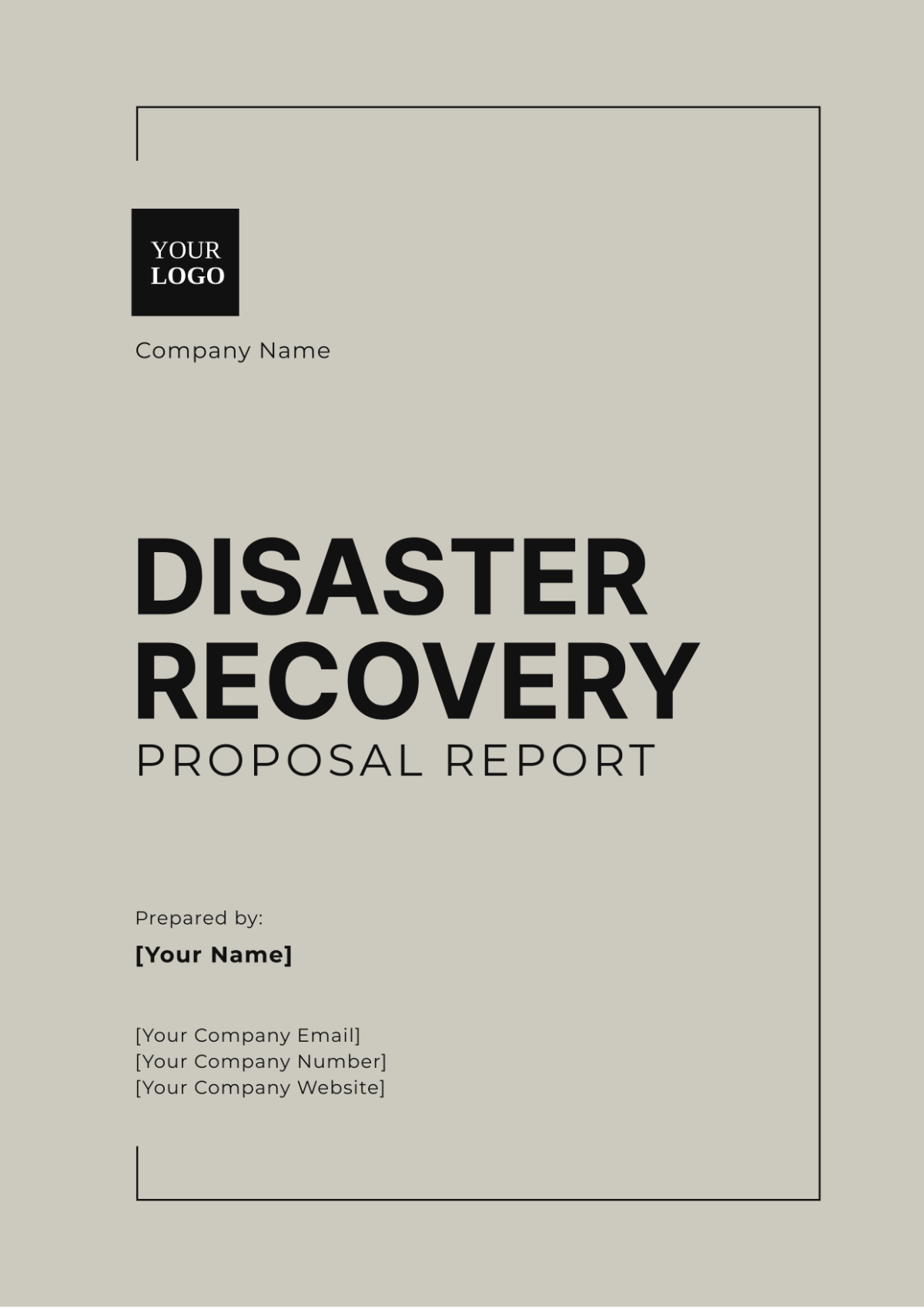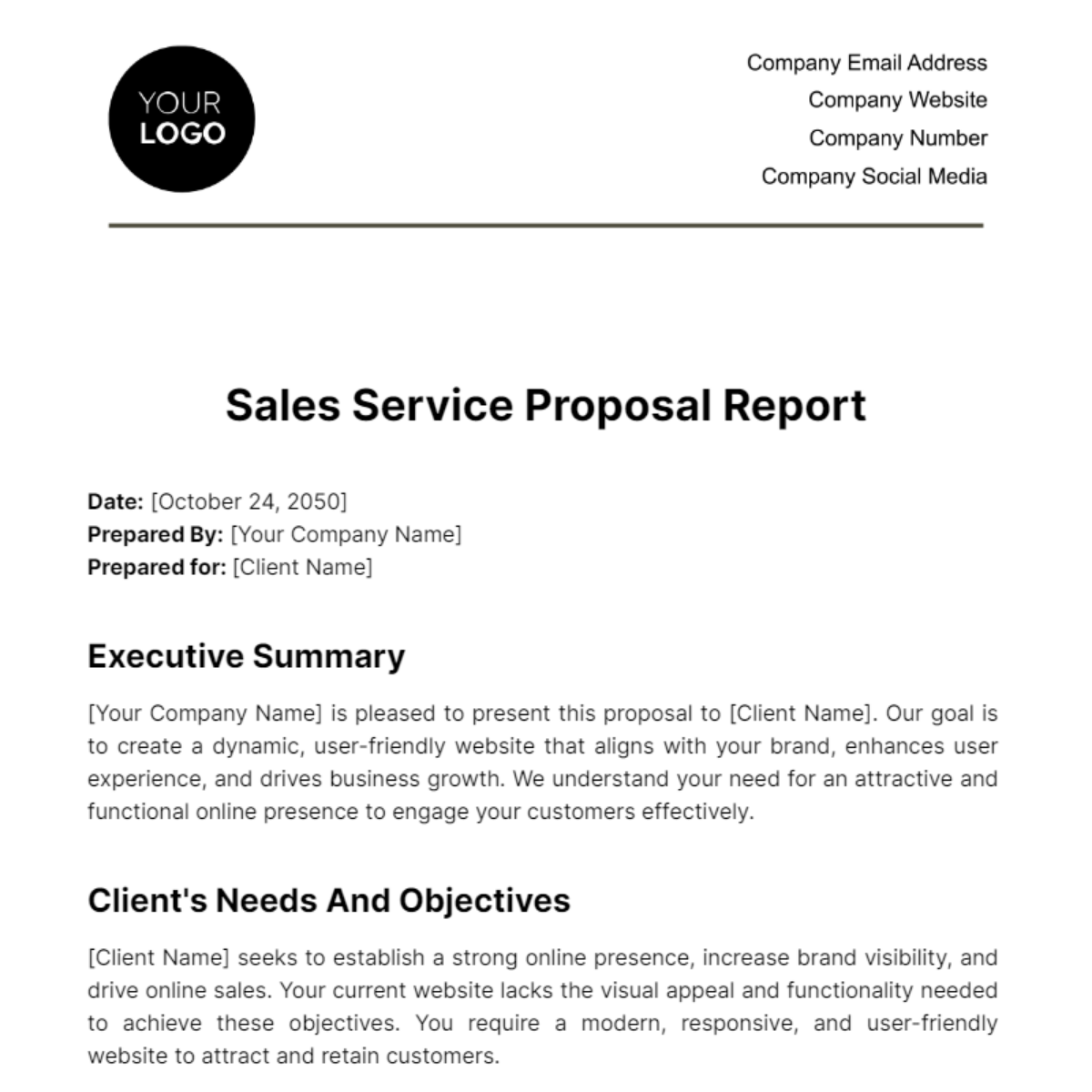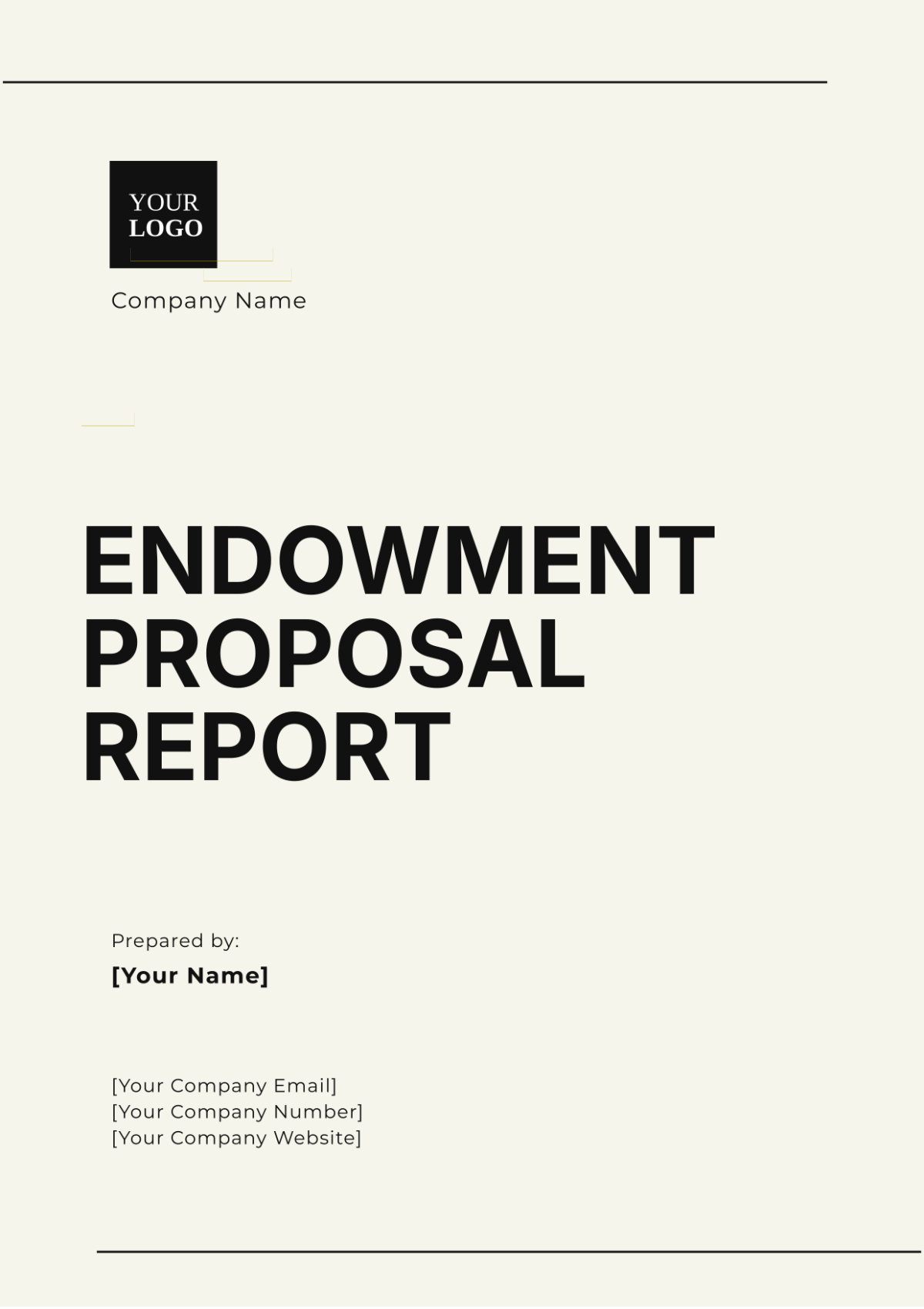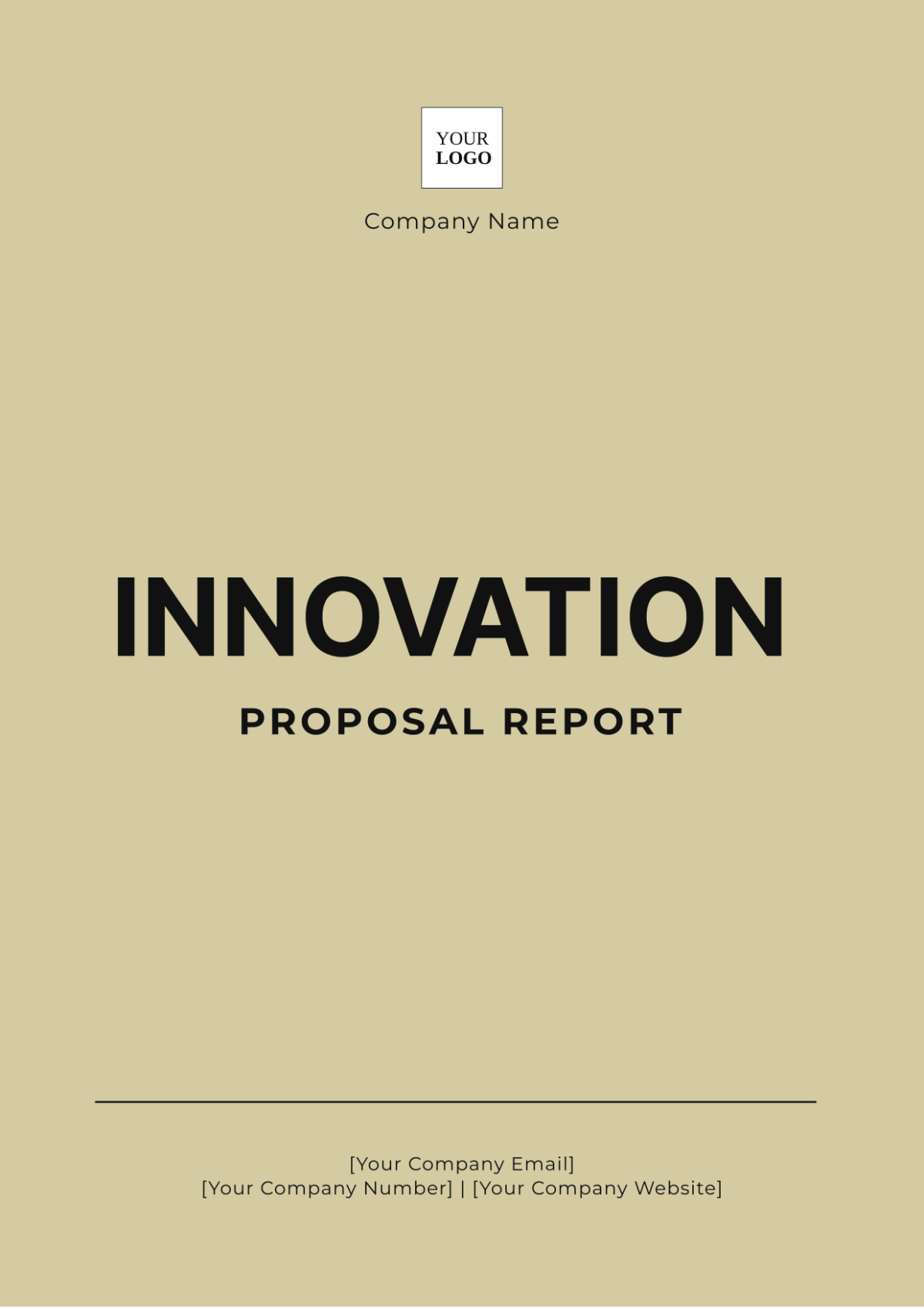Joint Venture Proposal Report
1. Executive Summary
This report outlines the terms, objectives, and financial considerations of a proposed joint venture (JV) between [Your Company Name] and [Partner Company Name]. This collaboration aims to leverage mutual strengths to achieve shared business goals, enhance market opportunities, and improve competitiveness.
2. Objectives of the Joint Venture
2.1 Overall Objectives
Expansion into new markets
Combining technical expertise and resources
Risk sharing and cost efficiency
Enhanced innovation and R&D capabilities
2.2 Specific Goals
Introduce new product lines by the end of the third quarter.
Achieve a significant increase in market share within two years.
Decrease operational costs by a specified percentage annually.
3. Terms and Structure of the Joint Venture
3.1 Legal Structure
The joint venture (JV) will be established as a Limited Liability Company (LLC) to provide flexibility in management and operations while limiting the liabilities of the parent entities.
3.2 Duration
The initial duration of the joint venture will be five years, with an option for renewal based on mutual agreement between the participating entities.
3.3 Capital Contributions
Company | Monetary Contribution | Non-Monetary Contribution |
|---|---|---|
[Your Company Name] | [Amount] | Technology and IP Rights |
[Partner Company Name] | [Amount] | Market Access and Distribution Networks |
4. Governance and Management
4.1 Board of Directors
The Board of Directors will consist of six members, with an equal number appointed by each participating entity.
4.2 Management Team
The management team will include executives from both entities. Key positions are as follows:
CEO: Appointed by mutual agreement.
CFO: Nominee from one of the entities.
CTO: Nominee from the other entity.
5. Financial Considerations
5.1 Revenue Sharing
Profits will be distributed equally between the participating entities after deducting operating expenses and setting aside reserves for future investments.
5.2 Cost Allocation
Costs will be allocated based on the contributions and involvement of each party in specific projects. Detailed cost allocation methodologies will be agreed upon by both parties.
6. Risk Management
6.1 Risk Identification
The key risks associated with the joint venture include:
Market entry risks
Cultural differences
Regulatory compliance
Operational integration
6.2 Mitigation Strategies
To manage these risks, the following strategies will be employed:
Regular risk assessments and updates
Cross-cultural training programs
Engagement of legal and regulatory experts
Effective communication and project management systems
7. Performance Metrics
7.1 Key Performance Indicators (KPIs)
The success of the joint venture will be measured using the following KPIs:
Revenue growth
Market share increase
Cost savings
Customer satisfaction and feedback
Innovation outputs
7.2 Reporting and Evaluation
Regular financial and operational reports will be generated to evaluate performance against established KPIs. These reports will be reviewed in quarterly board meetings.
8. Conclusion and Next Steps
This joint venture represents a significant opportunity for both parties to achieve their strategic objectives and create value. Following the approval of this proposal, the next steps will include the finalization of legal documentation, establishment of the joint venture entity, and comprehensive planning for operational integration.

